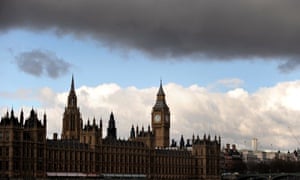The UK is in the middle of lots of political interrogation. The tories has won a majority in the last parliamentary election and their leader David Cameron promised if reelected to organise a referendum on the country's membership in the European Union. This brings Europhiles and anti-austerity groups in real despair, as well as Scots, more attached to the EU, to wonder again about partition.
Here is a op-ed in the Guardian about the attempt at reforming the electoral system and why it failed.
Link: http://www.theguardian.com/commentisfree/2015/may/31/electoral-reform-general-election-results-2015-first-past-the-post
The real reason David Cameron is sitting on a Commons majority
A new study shows that the most disproportionate result in UK history cheated millions of voters out of representation
Sunday 31 May 2015 00.03 BST
Chosen extracts:
"the main explanation for why David Cameron is at Number 10 enthroned atop a Conservative parliamentary majority":
"There is a big, basic and brute reason why we have just heard a Tory Queen’s speech, will soon be listening to a Tory budget and have five years or so of Tory law-making ahead of us. It is so bloody obvious that no one is talking about it – it is the electoral system.
"By no normal definition of the word popular were the Conservatives popular at the election. They received 36.9% of the vote. By no normal definition of the word mandate did they get the endorsement of the electorate to fully implement their manifesto. Nearly two-thirds of voters did not put their cross in the Tory box. Factor in the turn-out and the Conservatives secured the backing of less than a quarter of the registered electorate. It is first past the post that alchemises a minority vote share into more than half of the seats in the House of Commons, every seat in the cabinet and the power to pursue an entirely Tory agenda for the next five years.
"The other party greatly favoured by winner takes all were the Scottish Nationalists. (...) the size of Nicola Sturgeon’s clan, now the third largest group in the Commons, will entitle them to lots of significant perks in the party pecking order. (...) Half of Scotland’s voters wanted to be represented by the SNP. They have now got 56 of its 59 MPs to give megaphonic expression to their views; 50% of Scots did not want to send a Nationalist MP to Westminster. That half of the nation is represented by just three MPs, one each for Labour, the Tories and the Lib Dems".
(...)
"For the electoral system has more than one distorting effect. Having turned votes into seats in a wildly disproportionate way, it then reinforces that by skewing the shape of political argument in the years afterwards. During the coalition period, producers of TV and radio discussion programmes would want to have a Lib Dem on the panel just about every week. In the years to come, I suspect sightings of Lib Dems on programmes such as Question Time will be much rarer and there will be a lot more MPs from the SNP sitting around David Dimbleby’s table. The Lib Dems beat the SNP in votes, but because of the relative weight of their MPs, there will be much more amplification of nationalist views in the media than there will be of liberal views".
"The Greens were another victim. They quadrupled their support to a million plus, but still have just the one MP – Caroline Lucas – to speak for them in parliament.
(...)
(The people worst treated by the electoral system were those who voted for Ukip. There were approaching 4 million of them, making them third in share. For all those votes, they were rewarded with just the one MP, Douglas Carswell.
(...)

"The Electoral Reform Society will tomorrow publish a study that marshals the evidence to argue that this was the most disproportionate result in British election history. It also makes a compelling case that the electoral system is now working to cleave an already fractious kingdom by artificially exaggerating our regional and national divides. Look at one of those maps with constituencies coloured to show the party of the MP. The sea of blue in the home counties leads you to think that there are virtually no Labour voters there when, in fact, there are quite a lot. The sea of red in the big cities of the north suggests that there are no Tory voters there when, in fact, there are quite a lot. Looking at the map you’d think there was barely anyone who wasn’t a Nationalist voter north of the Tweed when, in fact, half of Scotland voted for a unionist party. These many millions of voters have been cheated out of representation".
" I was recently in conversation with some European diplomats. All of their countries used some form of more proportional voting. They expressed amazement that we still turn votes into power in a way that is so self-evidently unfair and some surprise that there was not a great popular outcry about it."One reason that electoral reform has not gained enough traction in this country to force change is that the two biggest parties have never seen it to be in their interests to embrace the cause.
"Some people do get cross about it. Shortly after the election, a petition was organised and 478,000 names signed the call for electoral reform. It was delivered to Number 10. Unfortunately for reformers, that is the one address in the UK least likely to be interested in changing the way we elect governments. David Cameron is the last person who is going to be interested in reforming a voting system that has just converted a minority of the vote into all the spoils of power. When he looks at first past the post, far from seeing a broken system, he sees one that has just worked perfectly for him".
--
See the Electoral Reform Society's website here:
http://www.electoral-reform.org.uk/
No comments:
Post a Comment